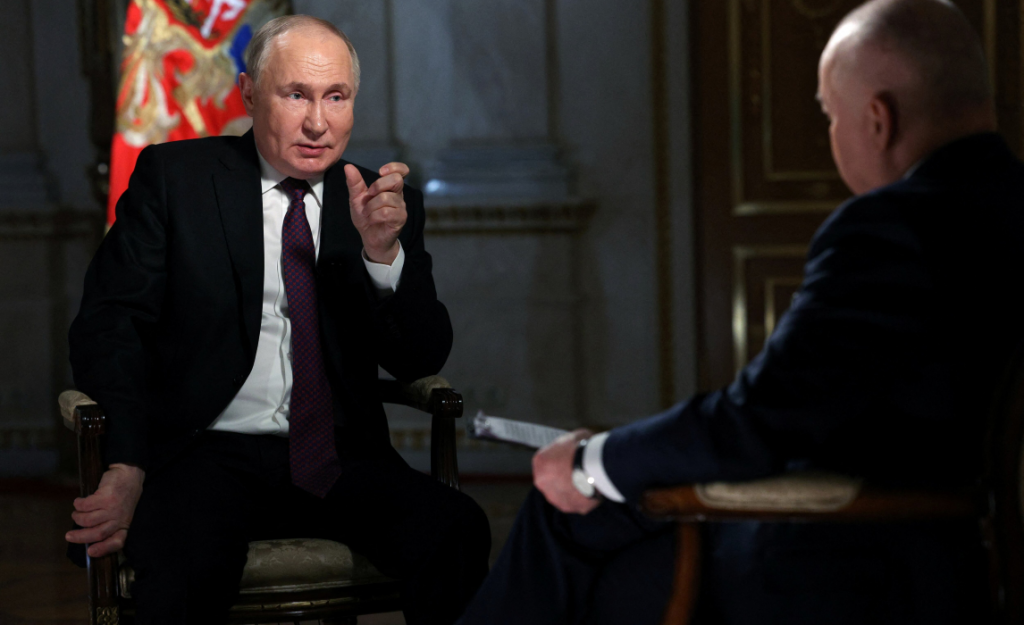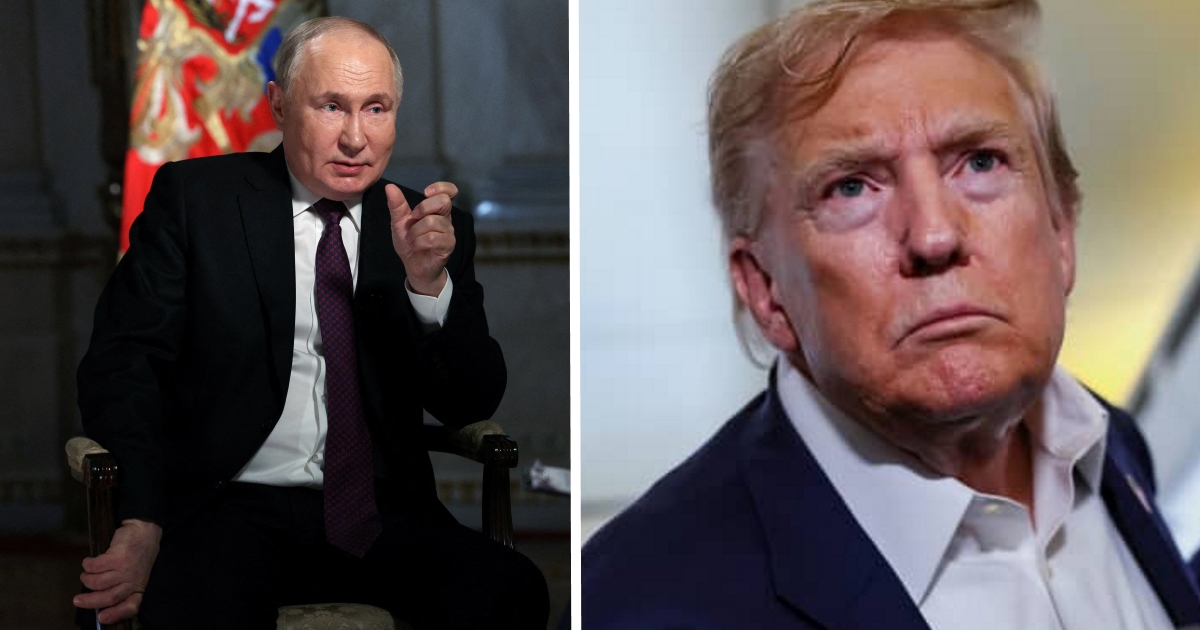**Ralph Goff**, a veteran former CIA chief of operations for Europe and Eurasia, issued a chilling prediction: **Russian President Vladimir Putin may be ousted by his inner circle**, not by democratic protest. Goff warned that Putin’s rumored health struggles and growing distrust among oligarchs could trigger a sudden palace coup—mirroring the rapid downfall of figures like Assad—while U.S. tensions with Russia escalate under Trump’s submarine deployment Goff explains his theory to *The Sun* and **UNILAD outlines his “organized crime” analogy** connecting Putin’s fate to elite betrayal.
Goff’s warning comes as President **Trump ordered two nuclear submarines** to be repositioned in “appropriate regions” near Russia—responding to a provocative threat from ex‑Russian president **Dmitry Medvedev**. Analysts widely saw Trump’s move as symbolic escalation, since U.S. subs are routinely postured for nuclear deterrence regardless of location per Reuters on Trump’s announcement and **Sky News reports on the strategic messaging angle** of the naval posture change.

“If Putin becomes bad for business, oligarchs may quietly remove him.”
In his assessment, Goff emphasized that Putin’s **health concerns**—rumored to include thyroid cancer, Parkinson’s, and MS—combined with **elite dissatisfaction** over the war’s economic toll, increase the risk of internal betrayal. He sees a scenario akin to organized crime: when a leader is perceived as a liability, allies may conspire to usher him out, abruptly and decisively Goff spoke bluntly about oligarch-led ousting and **UNILAD reinforces his mafia analogy** as an insider-level forecast.
Goff’s comments gain urgency amid intensifying U.S.–Russia tensions over Ukraine. On **August 1**, Trump offered Russia a ceasefire deadline by **August 8**, threatening steep tariffs if terms were refused. Medvedev shot back that Trump was playing with nuclear escalation—and one day later, Trump announced submarine repositioning as a precautionary show of force Reuters tracks the exchange and **UNILAD captures the tit-for-tat rhetoric** on the escalation sequence.
International security analysts caution that Trump’s public mention of nuclear assets risks misinterpretation. **John Bolton**, former U.S. national security advisor, criticized the move as “risky and ill‑advised”—arguing that such gestures may be misread by Moscow as signals of a pre‑emptive strike posture Bolton’s CNN critique.
Meanwhile, defense commentators including **Daryl Kimball** of the Arms Control Association called the repositioning “irresponsible and inadvisable,” and **Hans Kristensen** of the Federation of American Scientists noted that subs are always capable of targeting Russia regardless of geographic position—meaning Trump’s order had symbolic more than strategic significance as analysts evaluated in Reuters coverage.

With Goff forecasting betrayal from within Russia’s power structure, another former CIA figure, **Director Bill Burns**, has cautioned Western leadership not to be intimidated by Russia’s nuclear sabre‑rattling. Burns emphasized the importance of diplomacy over escalation—even in light of Medvedev’s threats guardian coverage of Burns’ stance.
Goff also highlighted the economic side: Putin’s war has reportedly devastated the Russian economy—straining foreign investment, shrinking the ruble, and deepening elite dissatisfaction. He contrasted Putin’s current situation with Assad’s sudden collapse, suggesting Russia’s oligarchy might similarly act if Putin is deemed “bad for business” Goff’s analogy to Assad’s fall.
Defense strategist **David Petraeus**, another former CIA chief, has consistently pressed for increased Western armaments to Ukraine, warning that Israel-style deterrence steps may force Putin toward negotiation—and potentially erode elite support internally if sanctions bite too hard Petraeus’ broader strategic logic and related analysis on regime pressure.
In summary: Trump plants a symbolic deterrent by deploying nuclear submarines; Goff predicts Putin’s fall could result from elites turning on him amid health decline and war fatigue. The confluence of **external military posturing** and **internal political stress** may define how current tensions actually end—not in dramatic conflict, but in sudden internal unraveling.






